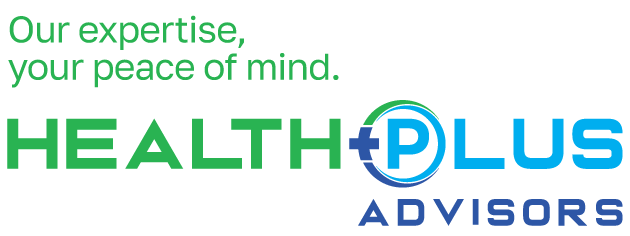The Medicare Savings Programs are a crucial lifeline for low-income Medicare beneficiaries, administered by state Medicaid agencies. These programs offer substantial financial aid, reducing healthcare expenses such as premiums, deductibles, coinsurance, and copayments. This powerful collaboration between Medicaid and Medicare ensures older Americans can access vital medical care without being overwhelmed by financial burdens. If you’re grappling with healthcare costs, check if you qualify for these programs. This straightforward action can significantly lighten your financial load and provide relief, knowing that your healthcare needs are addressed.
What are Medicare Savings Programs?
Medicare Savings Programs (MSPs), sometimes called Medicare Buy-In Programs or Medicare Premium Payment Programs, are managed by Medicaid to assist with Medicare costs. These programs help low-income Medicare recipients manage their healthcare expenses. MSPs can cover various expenses, including Part A and B premiums, deductibles, coinsurance, and copayments. Each program offers unique benefits, underscoring the importance of understanding the specific assistance available in your state.
Who’s eligible for Medicare Savings Programs?
Your resources are considered when determining eligibility for Medicaid and Medicare Savings Programs. These include funds in checking, savings, and retirement accounts, as well as the value of stocks and bonds. However, certain assets, such as the value of your primary residence, one vehicle, burial plots, and designated burial expenses up to $1,500, are exempt from consideration. Additionally, household furniture and personal items are also excluded when assessing available resources. This means that even with some savings or assets, you may still be eligible for these programs.
Understanding the Four Types of Medicare Savings Programs
There are four Medicare Savings Programs, each with varying coverage and eligibility rules. Depending on the state, these programs assist with Medicare costs and may be known by different names. Let’s explore each program to understand its benefits and who qualifies.
Qualified Medicare Beneficiary (QMB)
The Qualified Medicare Beneficiary (QMB) Program aids Medicare beneficiaries in covering various expenses, including premiums for Medicare Part A and Part B, deductibles, and coinsurance and copayments for services covered by Medicare. Participants in the QMB Program are safeguarded from being billed for Medicare-covered services and equipment by Medicare providers. If billed incorrectly, individuals should inform their provider or debt collector about their QMB program enrollment and seek refunds through their state Medicaid office. QMB beneficiaries automatically qualify for Extra Help, known as the Part D Low-Income Subsidy (LIS), substantially reducing prescription drug expenses. The QMB program is for people with the greatest financial need and has the strictest limits among Medicare Savings Programs.
Specified Low-Income Medicare Beneficiary (SLMB)
The Specified Low-Income Medicare Beneficiary (SLMB) Program assists in covering Medicare Part B premiums for eligible individuals. Beneficiaries of the SLMB Program are automatically eligible for Extra Help, ensuring they pay no more than $11.20 for medications covered by their Medicare drug plan. For 2024, the income and resource limits for eligibility are: Individuals must have a monthly income not exceeding $1,526 and total resources not exceeding $9,430, while married couples must meet a monthly income limit of $2,064 and total resource limit of $14,130.
Qualifying Individual (QI)
The Qualifying Individual (QI) Program assists in paying for Medicare Part B premiums for eligible individuals. If you qualify for the QI Program, you’ll also receive Extra Help benefits, ensuring you spend no more than $11.20 for medications covered by your Medicare plan. However, if you qualify for Medicaid, you cannot receive benefits from the QI program. You must re-apply for the QI Program each year to continue receiving benefits. States prioritize QI applications on a first-come, first-served basis.
Qualified Disabled and Working Individual (QDWI)
The Qualified Disabled and Working Individual (QDWI) Program assists in covering beneficiaries’ Part A premiums. To qualify, individuals must have a disability, be employed, and have lost their Social Security disability benefits and premium-free Part A due to returning to work. Additionally, specific income and resource limits must be met: Individual monthly income must not exceed $5,105, with total resources not exceeding $4,000; for married people, the monthly income limit is $6,899, with a total resource limit of $6,000.
Other Ways to Save on Medicare Costs
Medicare Savings Programs assist with Part A and B premiums and out-of-pocket costs, but there are other ways for older Americans with low incomes to save on healthcare expenses. Dual Eligible Special Needs Plans (D-DSNPs) are Medicare Advantage plans tailored for those eligible for Medicare and Medicaid, offering extra benefits like grocery allowances and utility assistance. Additionally, government programs such as Extra Help (Part D Low-Income Subsidy), Supplemental Security Income (SSI), Social Security Disability Insurance (SSDI), and state Medicaid programs can provide further financial aid for healthcare expenses. These options expand access to affordable healthcare for individuals with limited incomes.
Health Plus encourages exploring Medicare Savings Programs to manage healthcare costs efficiently. With different options, people can find the right solution to ease financial worries and access necessary medical care. Understanding eligibility and benefits is critical to taking proactive steps toward affordable healthcare and peace of mind.
About the Author:

Chris Carroll, a Lakeland native, is a dedicated and experienced insurance agent with HealthPlus Advisors. Chris holds a master’s degree in theology from Life Christian University, demonstrating his commitment to both academic excellence and personal growth.
Married to his beloved wife Kathy for 33 years, Chris is a proud father to their son, Caleb. Before transitioning into the insurance industry, Chris built a solid foundation in customer service and operational excellence through his 15-year tenure in manufacturing with Publix Super Markets, Inc.
Since 2007, Chris has specialized in Medicare insurance, bringing over a decade and a half of expertise to his clients. His approach to insurance is deeply personal; he treats each of his clients with the same care and respect he would offer his own parents. Chris’s dedication extends beyond his professional life into his personal passions. He enjoys long-distance rides on his Honda F6B and is actively involved in his community, volunteering in church activities and prison ministry.
At HealthPlus Advisors, Chris’s mission is to support and mentor other agents, helping them to grow and succeed. His extensive experience and compassionate approach make him a trusted advisor and an invaluable asset to both his clients and colleagues.


